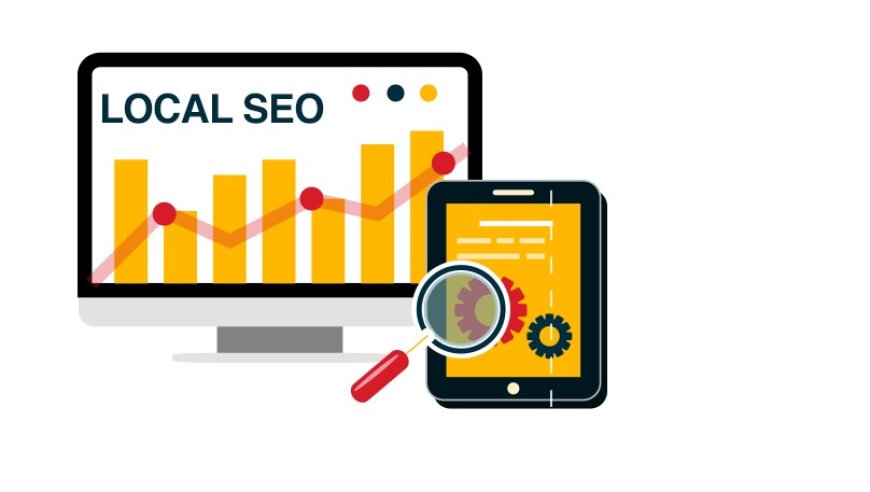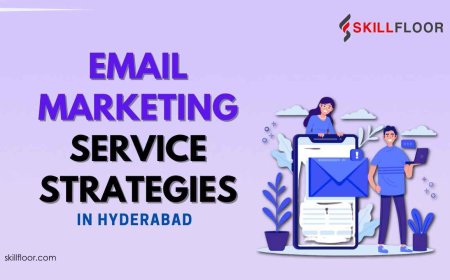Local SEO
Boost your business's online visibility with effective Local SEO services. Enhance your local presence, attract nearby customers, and improve your search engine rankings.

Local SEO, or local search engine optimization, is about making sure your business gets found by people searching for it in your local area. Think of it as improving your online visibility for nearby customers. It's become super important because more and more people are using search engines to find local businesses.
The situation today is that local businesses need to be visible online to compete. This is where local SEO comes in. It helps businesses show up in local search results, which can boost foot traffic to their physical stores or bring more online customers.
Challenges In Local SEO
However, local SEO isn't always a walk in the park. It comes with its own set of challenges that businesses need to overcome to succeed in the online marketplace.
One common challenge is the growing competition. As more businesses realize the importance of local SEO, the competition for the top spots in search results is fierce. This means you have to work extra hard to stand out and get noticed by potential customers.
Another complication is the ever-changing landscape of search engines. Google, for example, frequently updates its search algorithms. These changes can impact your local SEO efforts, and it's crucial to keep up with them to maintain your rankings.
User-generated content and online reviews are another hurdle. Customer reviews play a big role in local SEO. Positive reviews can boost your rankings, but negative ones can harm your reputation. Managing and encouraging positive reviews while addressing negative ones is a delicate balancing act.
Mobile search is also shaking things up. More people are using mobile devices to search for local businesses. So, having a mobile-friendly website and being easily discoverable on mobile searches is crucial.
While local SEO is essential for businesses, it's not without its complications. The increasing competition, the ever-evolving search engine algorithms, the influence of customer reviews, and the rise of mobile searches are all factors that businesses need to navigate to succeed in the local SEO landscape. It's a dynamic and challenging field, but with the right strategies and dedication, businesses can make their mark in the local online marketplace.
How does Local SEO differ from traditional SEO?
Local SEO is like traditional SEO but with a local twist. While traditional SEO focuses on improving a website's visibility on a global or national scale, local SEO narrows it down to a specific geographical area. It's all about making sure your business shows up when people in your neighborhood search for your products or services.
In traditional SEO, you compete with websites from all over the world to rank high on search engine results pages. In local SEO, your competition is local businesses within your city or region.
Here's a simple example: Imagine you run a pizza shop in New York. If someone in New York City Googles "best pizza," they'll get local results showing pizza places in their area. Local SEO helps your pizza shop be one of those results.
What are the primary factors affecting local search rankings?
Several factors influence your local search rankings, and understanding them is essential for success:
Google My Business (GMB): This is a big one. Claiming and optimizing your Google My Business listing is crucial. It provides essential information about your business, like your location, hours, and customer reviews. Google uses this data to decide how relevant and trustworthy your business is.
On-Page Optimization: Optimizing your website with local keywords and phrases helps search engines understand what you do and where you're located. This includes using location-specific keywords in your content, meta tags, and headers.
Local Citations: These are online mentions of your business name, address, and phone number (NAP). Consistency in these details across various platforms like directories and social media sites helps boost your credibility.
Customer Reviews: Reviews matter. Positive reviews can boost your rankings, while negative ones can hurt. Encourage happy customers to leave reviews and address any negative feedback professionally.
Structured Data and Schema Markup: This is technical, but it helps search engines understand your content better, which can improve how your site appears in search results.
businesses optimize for local search
Optimizing for local search involves several steps:
-
On-Page SEO: Start by optimizing your website for local keywords related to your business. Ensure your website is mobile-friendly and loads quickly.
-
Google My Business: Claim and verify your Google My Business listing. Fill it out completely, including photos, hours of operation, and accurate contact information.
-
Local Citations: Ensure your NAP (Name, Address, Phone) information is consistent across all online platforms and directories. This helps build trust with search engines.
-
Customer Reviews: Encourage customers to leave reviews on platforms like Google, Yelp, and Facebook. Engage with these reviews and address any concerns.
-
Content Marketing: Create relevant and engaging content for your local audience. This could include blog posts, videos, or social media updates that highlight your services and community involvement.
-
Link Building: Build high-quality backlinks from local websites and directories. These can boost your local authority.
Tools and strategies can help businesses improve their local SEO
Tools for Keyword Research:
One of the first steps in local SEO is understanding what people are searching for in your area. Keyword research tools like Google Keyword Planner and Moz's Keyword Explorer can help you identify the most relevant and commonly searched terms related to your business. These tools give insights into the keywords that potential customers are using when looking for products or services like yours.
Google My Business (GMB):
Claiming and optimizing your Google My Business listing is a must. It's a free tool that allows you to manage your business's appearance in Google Search and Maps. Fill out your profile completely, including your address, phone number, business hours, and images. Encourage customers to leave reviews on your GMB listing, as positive reviews can boost your local rankings.
Local Citations:
Local citations are online mentions of your business's name, address, and phone number. Consistency is key here. Ensure that your business information is accurate and consistent across various online directories, review sites, and social media platforms. Tools like Moz Local can help you manage and monitor your citations.
Customer Reviews:
Positive reviews are essential for local SEO. Encourage satisfied customers to leave reviews on platforms like Google, Yelp, and Facebook. Respond to reviews, both positive and negative, to show engagement and build trust. Tools like ReviewTrackers can help you manage and track customer reviews across different websites.
Structured Data and Schema Markup:
Using structured data and schema markup on your website can provide search engines with more information about your business. This can result in rich snippets in search results, which make your listing more eye-catching and informative to users. Schema.org provides a set of schemas you can use to mark up different types of content on your website.
On-Page Optimization:
Optimizing your website's content for local keywords is crucial. Ensure that your website includes your location and relevant keywords naturally in headings, page titles, and meta descriptions. High-quality, locally-focused content also helps in local search. Tools like Yoast SEO for WordPress can assist with on-page optimization.
Content Strategy with a Local Focus:
Create content that caters to the local audience. Write blog posts, articles, and guides that are specific to your area and industry. For example, if you're a restaurant, you can write about local food events or the history of your town. Share this content on your website and through your social media channels to engage local users.
Social Media Engagement:
Engage with your local audience on social media platforms. Share updates about your business, respond to comments and messages promptly and participate in local conversations. Social media engagement can improve your online presence and boost your local SEO.
Link Building:
Earning high-quality backlinks from local websites and authoritative sources can improve your local SEO. Building relationships with local organizations, getting featured in local news, or sponsoring local events can help you acquire relevant, authoritative links.
There are several tools and strategies to enhance your local SEO. From keyword research to on-page optimization, managing citations, and engaging with customers through reviews and social media, a holistic approach is essential. Local SEO is an ongoing effort that requires consistent attention and adaptation to stay competitive in local search results. With the right tools and strategies, businesses can improve their local SEO and increase their visibility to potential customers in their area.
Local SEO is all about making your business more discoverable to local customers. It differs from traditional SEO in its focus on geography and proximity. To succeed in local SEO, you must optimize your website, claim and manage your Google My Business listing, encourage customer reviews, and engage with your local community. Using the right tools and strategies can significantly improve your local SEO efforts and help your business thrive in your neighbourhood.






























































